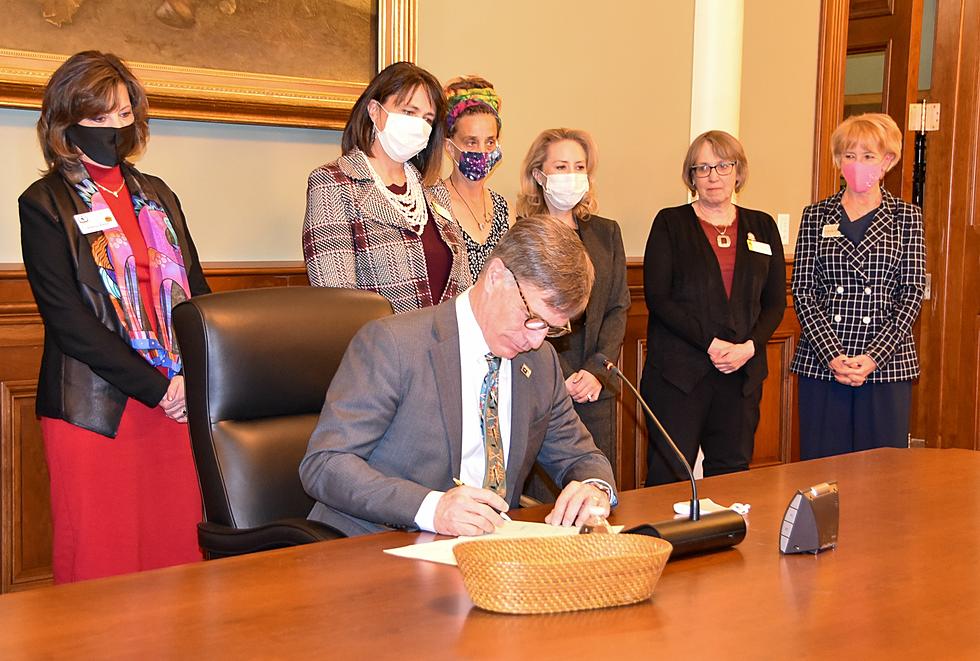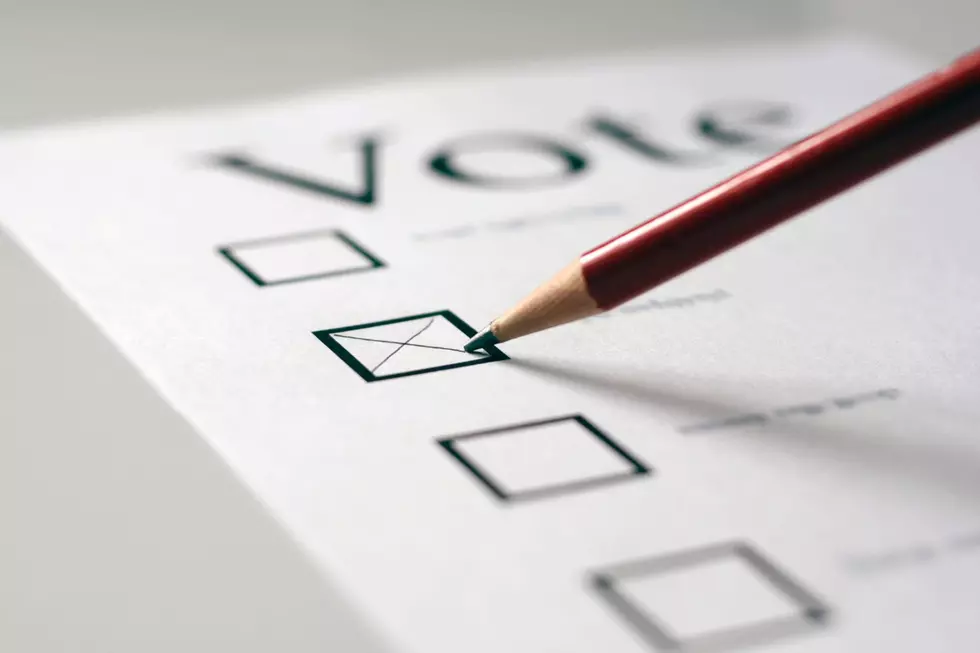
Ed Buchanan Settling Into Wyoming Secretary of State’s Office
CHEYENNE, Wyo. (AP) — In early February, Ed Buchanan's time in politics appeared to be behind him. Buchanan stepped down from his post in the Legislature in 2012 after serving for nearly 10 years, culminating in a term as Speaker of the House.
Six years ago, he ran for secretary of state, losing in the primary to Ed Murray by a couple thousand votes.
Buchanan was working for the Wyoming Attorney General's Office, assisting with criminal prosecution, when Murray abruptly resigned in mid-February.
Just a few weeks later, after being shortlisted by the Wyoming Republican Party and appointed by Gov. Matt Mead, Buchanan found himself occupying Murray's old office.
Buchanan didn't have much to say about the circumstances that led to Murray's resignation and his own sudden elevation to the sixth-floor of the Wyoming Financial Center, where the secretary of state occupies two floors. Murray's abrupt departure came after two women accused him of sexual misconduct, the first of which he said was false and the second that he did not recall though he cited them in the letter relinquishing his post.
"I don't think it's fair for me to comment on that either way," Buchanan said of the events leading to Murray's resignation. "I don't know the facts or anything and so I have no opinion."
But on other matters, Buchanan is eager to share his thoughts. Having run for the office four years ago, he still has many of the same priorities and ideas from the research he conducted during that campaign.
"Being familiar with the duties of the office, it's been a fairly smooth transition," said.
The Wyoming Secretary of State is an odd position. While it's plenty clear what some statewide elected officials do — the superintendent of public instruction, for example — the secretary of state's most prominent role comes in overseeing elections, but the post also has more obscure, if still important, responsibilities.
Buchanan wants to draw attention to some of those, such as the office's oversight of all rules and regulations passed by state agencies, in order to both educate the public and streamline the office's functions where possible.
"There's a lot of things that you see outside the statutes that affect everybody and I just don't think people think about those as much," Buchanan said.
He wants to improve public outreach to make people more aware of the regulations that exist and what impact they have.
But Buchanan said that much of his time between now and November will be occupied with statewide elections, with party primaries in August and the general election in November. One U.S. Senate and U.S. House seat are on the ballot, as well as the five statewide offices, including governor and secretary of state.
Buchanan plans to be on the Republican primary ballot for secretary of state, hoping to win a full four-year term. His appointment by Mead in early March is good only through next January.
His own campaigning will start in late April, following the state Republican convention, and Buchanan acknowledged the strangeness of trying to bring stability to the office while serving a roughly 10-month term that won't be extended unless he wins the election.
"It's an odd timing thing," Buchanan said. "You have to run for the position at the same time that you're trying to provide the office with some continuity."
State Sen. Leland Christensen, R-Alta, announced his intention to run for secretary of state prior to Buchanan's appointment. But Thursday, he withdrew from the contest, instead throwing his hat into the ring for state treasurer.
Murray's most notable actions in office during the last 12 months centered on corporate filing fees — Murray thought raising the cost would deter business in the state — and federal voter fraud efforts, which Murray pushed back against. He called a now-aborted effort by the White House to request voter data from states as laying the groundwork for an unconstitutional overreach.
Buchanan largely agrees with Murray's positions on both points.
"I certainly don't want to see anything that would be a detriment or a hindrance to new business filing in Wyoming," Buchanan said. "We're the most business-friendly state in the country in part because of (the low fees) and in part of because of the ease in filing."
While many Republican-controlled states across the country have sought to crack down on supposed voter fraud, which critics dispute the existence of, by passing laws requiring photo ID to be shown at polls, among other measures, Wyoming has so far maintained relatively open voting rules.
Buchanan said that he was largely comfortable with the current election and voting laws in Wyoming, though noted that because of the small number of voters in some local elections, it is important to ensure that nobody is voting illegally.
"I think the laws that we have for Wyoming and the processes we have in place in Wyoming work very well," he said. "That's not to say that we should not strive for 100 percent when it comes to ensuring that those voting are indeed eligible to vote."
More From K2 Radio









